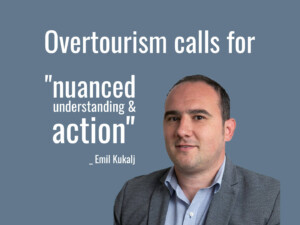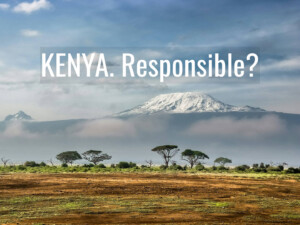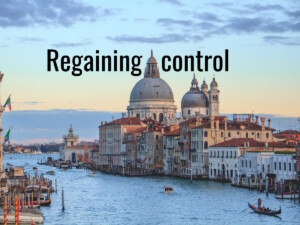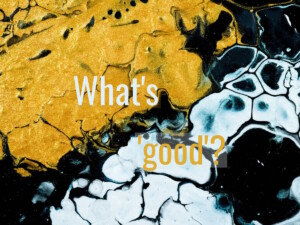Destination innovation is about more than technology
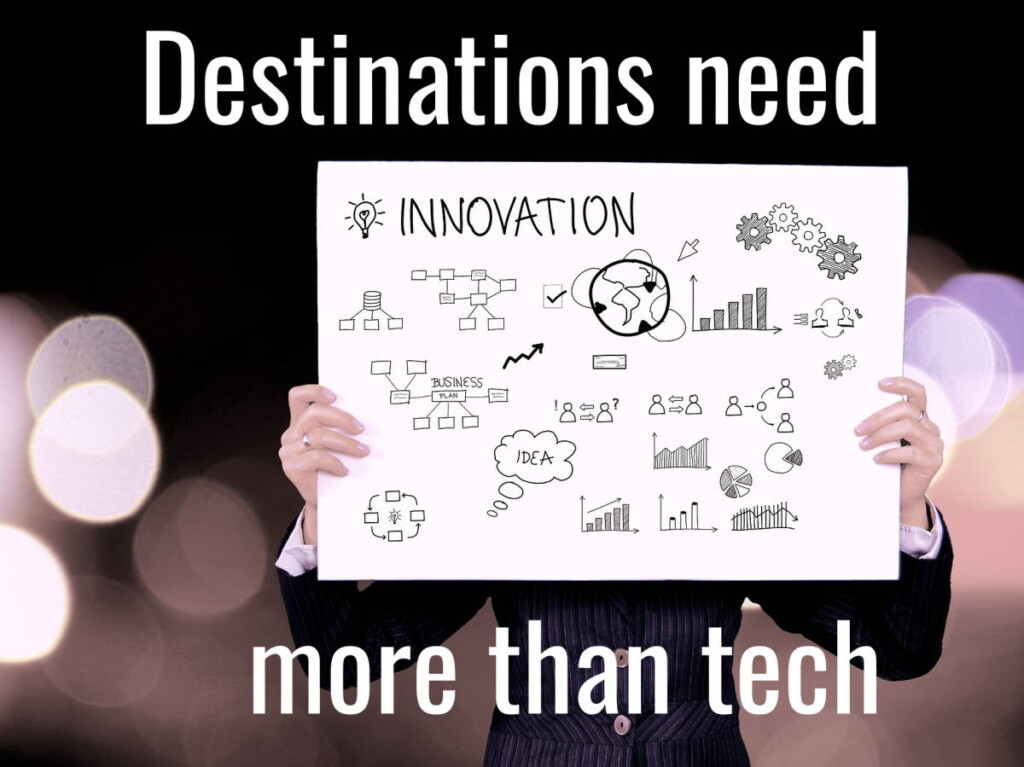
Technology alone is unlikely to solve all our problems, or help us achieve all that we wish. This is true for tourism destinations as they look to innovate out of crisis and into an uncertain future.
It’s a “GT” Insight by K Michael Haywood. [You too can write a “Good Tourism” Insight.]
The World Tourism Innovation and Development Report, 2021 – 2022 provides an interesting framework for global tourism innovation. It asserts that technology “holds the key to the creation and evolution of modern tourism”.
Does it do justice to innovation in destinations?
I’m not convinced.
While equating innovation to technologies — e.g. the application of smart tourism to destinations and the metaverse to cultural imaginations — is pervasive, it’s misleading.
Moreover, technologies aren’t benign. The advantages provided are undeniable, but they can alter the landscapes of communities, generate cultural upheavals, and foster significant socio-economic dislocations.
With innovation momentum gathering steam and the number of tourism innovation labs and challenge programs increasing — e.g. in Singapore and through the Inter-American Development Bank — we need to ask:
- Are the mandates of such initiatives in keeping with what is essential to communities and the world?
- Are positive economic and social outcomes for all stakeholders being fostered?
- Are private-public partnerships being encouraged?
- Is everyone acting in accord with what global citizens deem important?
- Is the freedom to move protected, and arbitrary borders removed?
As the UNWTO hopes, innovation-boosting initiatives should prioritise inclusive outcomes, but what do their actions reveal? Are the skills to rectify multiple adversities, develop processes, and bring about structured change being learned and applied?
The OECD/Bloomberg Survey on Innovation Capacity provides further insight. It reminds us that innovation is as much about “culture, leadership, finance, governance and people as it is about technology and data”.
As might be expected, though, the private sector remains fixated on product and experience innovations for evolving markets. However, with an intensifying desire for social innovation, expanding with purpose, becoming a B‑Corp, and seeking LEED certification, the pursuit of business model innovation cannot be ignored.
After all, as tourism evolves — economically, socially, and culturally — all-out efforts must be made to ensure communities become and remain compelling, welcoming, and comprehensively sustainable, so that community shared value becomes the norm. Consider Marriott’s attempt to Nurture our World.
In the public sector, one expects innovation to be in the public interest.
- But is purposeful innovation getting done?
- Is it creating real value by addressing the basic needs of citizens?
- Is it improving quality-of-life; public leisure, healthy and joyful lifestyles, and inclusive and sustainable livelihoods?
- And is it advancing ESG initiatives, entrepreneurial start-ups, complex emergency governance, and circular economies?
Innovative capacity
“Innovate” cannot be commanded. It needs to be nurtured. That’s difficult when people are conditioned by the familiar and fearful of the new; when communities and private and public organisations experience distress, or have no other option but to venture into uncertainty in disorienting times.
While some believe revival and vitality can be achieved through place branding, others lean towards new strategies, business models, and policies to leverage opportunities emanating from industry transition. Neither approach, however, is likely to yield positive results unless it can be demonstrated that tourism is values-led, and inspired by inclusive public engagement processes.
As the old adage goes “culture eats strategy for breakfast”. With organisational success contingent on maximising the fit between culture and strategy, why not the success of communities-as-destinations?
Don’t miss “Good Tourism” content tagged with
“Travel & tourism industry policy and governance”
Given the urgency to resolve pressing problems and leverage a destination’s strengths and distinctive resources, the case for innovation has to be made through research; formal and multifaceted assessments that detail what is required economically, socially, and culturally, now and into the future.
Unfortunately, the enemies of necessity are many. Regression can occur if obstacles and barriers disrupt problem solving; imagination is lacking; design isn’t taken seriously; stakeholder conceptions of value aren’t considered; or budgets hinder ideation and implementation.
To ensure capability isn’t wasted or innovation’s credibility challenged, industry leaders have to build stronger relationships and dare each other to be creative. With a focus on culture, for example, ways must be found to enshrine it in the offerings of destinations.
Indeed, value dissipates when visitors experience boredom or feelings of placelessness. When communities feel generic and there is a lack of human scale, the need for investment in innovative placemaking and meaningful spaces couldn’t be more important. (It would help if communities operationalised the Montreal Design Declaration.)
Well-conceived innovation can enhance destinations’ uniqueness and strengthen tourism’s “value to society”. Tourism’s connectedness to other industries, nature, arts, and cultures should be made clear as it integrates into the general fabric of a place.
Furthermore, with more people “running on empty”, organisations need innovative ways to engage employees and improve their well-being. This will require a transformation in organisational culture and employment practice so as to foster a deeper sense of belonging within caring organisations and communities.
Don’t miss “Good Tourism” content tagged with
“Travel & tourism and destination management”
Internal and external marketing innovations also demand a nuanced approach to understanding and connecting with citizens and customers. Such efforts require granular approaches so as to ensure peoples’ problems in search of solutions are identified, and the value craved delivered.
Marketing’s innovations are numerous. To flourish, peoples’ senses have to be enlivened and their curiosity fostered. By facilitating community advancement marketers can further ensure delight and acceptance.
Finally, innovation agendas cannot afford to ignore maintenance and repair. Neglect can add additional burdens, particularly when other imperatives, such as private-sector sustainability and public-sector decarbonisation, are slow in coming.
Innovation needn’t be in crisis. Indeed, destinations can seize the opportunities for innovation-led growth, so long as they master its eight essentials: Aspire, choose, discover, evolve, accelerate, scale, extend, and mobilise.
Innovation’s outcomes
Well-conceived and executed innovation can influence good outcomes.
By taking the lead, industry leaders will have to work with a shared sense of purpose to accelerate systemic change and develop targeted strategies. Working as innovation allies in pursuit of communityship, we can only hope to create jobs for people, not robots and streets for people, not cars.
Given that strategies and policies must respond to unanticipated changes in market and competitive conditions, having a living dynamic plan is critical if destination innovation is to remain relevant, and community-based tourism is to become the “future by design”, with help from venture capital.
Fundamental strategic and operational shifts have to be made in order to integrate sustainability’s four pillars, especially culture and mother nature, into innovation’s purpose. To ensure this, it is essential that organisations drive a Terra Carta culture of responsibility, strive to make the link between ESG targets and (financial) performance, and use the appropriate metrics by reimagining the Balanced Scorecard.
Don’t miss other “GT” Insights by K Michael Haywood
Now, while our communities-as-destinations carry meanings and potential far beyond hedonistic consumption, let’s not forget: They are our hometowns and sites of our collective sociability, our memories, imaginations, and “wunderlands” that need to be brought to the fore.
Progress is ensured when innovations create meaningful value that is demonstrably functional, emotional, life-changing, and has social impact. By adapting and improving as each evolves, value becomes the gift that keeps on giving.
So, with a little help from our friends and Shakespearian imagination, let’s re-imagine innovation for destinations as provocations towards a truly magnificent renaissance.
What do you think? Share a short anecdote, comment, or question below. Or write a “GT” Insight of your own. The “Good Tourism” Blog welcomes diversity of opinion and perspective on travel & tourism because travel & tourism is everyone’s business.
Featured image (top of post): Destinations need innovation more than tech. Image by Michal Jarmoluk (CC0) via Pixabay.
About the author
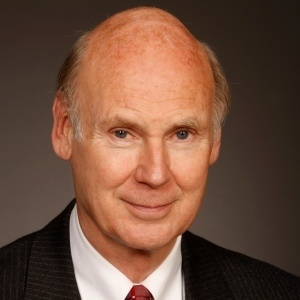
K Michael Haywood is Professor Emeritus, School of Hospitality, Food and Tourism at the University of Guelph in Ontario, Canada. Prof Haywood has recently written an e‑book “Astonish, Smarter Tourism by Design”. Find Michael on LinkedIn.


